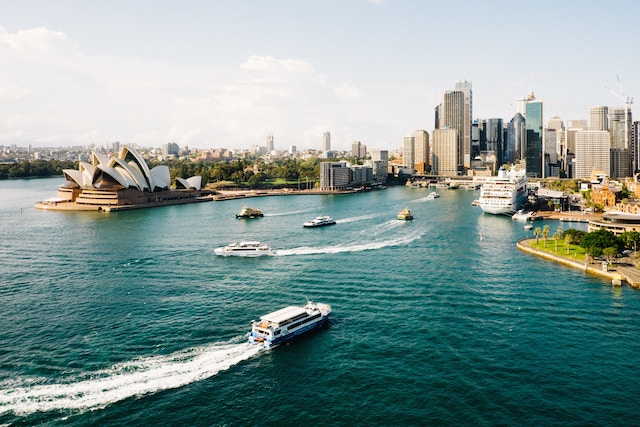Getting Confused by Australian English

When English speakers from the United States, the UK, Canada, South Africa, Australia and New Zealand get together, they love talking about differences in their mother tongue. Many of us have heard the same explanations and jokes over and over again, but we never seem to grow tired of these discussions: You guys call that a jumper! ?*laughs* That’s a sweatshirt!
Those of us from the United States are used to others knowing our slang. We know that when we speak about college people will know it means university, and that when we say vacation we mean holiday. When it’s the other way around, people from the U.S. are generally less aware. Having traveled and stayed in hostels, I’ve become accustomed to these conversations and am aware of my lack of knowledge. I’ve stayed with enough Australians to know they say some interesting things and have a playful obsession with shortening anything they can.
Having been in Melbourne for three weeks, my time has been spent organizing my life and job searching. In a cosmopolitan city like Melbourne, especially given my circumstances on a working holiday visa, I’ve encountered more foreigners than Aussies. This has shielded me from the particularities and peculiarities of Australian English so far. Meaning, I am still startled by my lack of understanding sometimes.
If someone invites you to The Evelyn Hotel on Brunswick Street, they aren’t being creepy or overly forward. Don’t worry, it’s just a pub.
During my time in Australia, it hasn’t even been the slang or the shortening of words that’s confused me. I haven’t settled in enough to be exposed to most of that yet. Rather, it’s been hearing familiar, common phrases used in a slightly different sense to how we used them back home that has caught me off guard. Here are some examples:
Getting Confused by Australian English
How are you going?
Made to sound like “howr ya goin’”, this is the most obvious, basic greeting. Yet, my initial reaction is still: what do you mean “how am I going? On a bus, on a train, walking?” What I’m supposed to say is, “I’m doing fine, thank you”. On second thoughts, doesn’t asking someone how they are carrying themselves make a lot more sense than how they are doing their life?
Arcade
No, the Melbourne CBD isn’t stuffed full of gaming centers for preteens, although I continue to think that when I hear the word used. Arcades in Melbourne are historic indoor shopping alleys with charming cafes, stores and detailed architecture.
Lecture
When I asked a restaurant’s employee whether her university had a lot of public lectures, it took me at least five minutes to explain that I didn’t want to attend her university class. I was interested in public speeches or discussions from professors on their research.
You alright?
Especially when someone whose first language isn’t English asks me this, my immediate reaction is to get defensive and wonder, “why wouldn’t I be alright?!” If someone from my home asked me if I was alright, it generally insinuates that they have reason to believe that I am not. When a clerk in Melbourne asked me if I was alright, I started surveying my appearance for potential visible indicators that something had happened.
Chuck
As in “chuck a few dollars in the donation bin.” This doesn’t encourage you to literally hurl money around. Unfortunately, vomiting also comes to mind to me. I’m starting to realize you can chuck just about anything: trash, money, food… the list goes on.
Hotel
If someone invites you to The Evelyn Hotel on Brunswick Street, they aren’t being creepy or overly forward. Don’t worry, it’s just a pub. Unless it’s a specialty pub, you won’t find beds for rent in there!
Check out Pink Pangea’s Writing, Yoga, and Meditation Retreats.
Ta
Easily confused with a sound rather than a phrase with meaning, people use “ta” to say thanks. Now that I’m aware, if I hear “ta” again I won’t have the urge to follow it by “da!”
No worries
No worries is a replacement for “you’re welcome”. At first I wanted to say “I wasn’t worried!” It’s almost as if the person is implying that I believed s/he was doing something spectacular for me, and he thinks I should just relax about it.
If it’s the phrases I’m already familiar with that make me think twice, I’m bracing myself for the moment I’m thrown into a full-blown Aussie conversation! Wish me luck.
Photo credit for Getting Confused by Australian English Unsplash. Do you have phrases to add to this list? Comment below! We can’t wait to hear from you.








